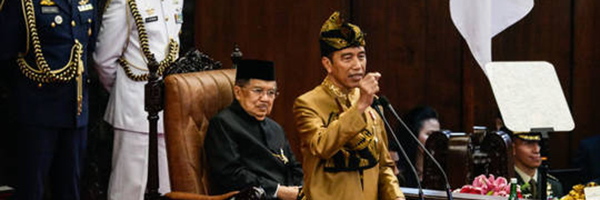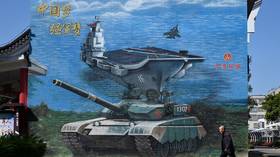A new power could be emerging in Asia
It is tempting to frame global geopolitics as a binary struggle between China and the US, as a competition between two economic giants, each of which has grown to see the other as the fundamental obstacle to its own security and success.
Yet the world is more complicated than that. International affairs are not moving towards a bipolar world in which two superpowers create rival systems and force all other countries to take sides, but is rather moving to a multipolar world, where there are many great powers all competing against each other.
Multipolarity is preceded by the disintegration of unipolarity, whereby one hegemonic power finds itself increasingly declining amid a rise of others. Thus, China is not the only rising power to reshape the global environment, even if it is at this time the largest, and because of this it is unlikely that Beijing will ever be a hegemon in the same sense as America was, for we must take other rising powers into account such as India and Russia, among others.
However, one often-overlooked country is emerging as geopolitically consequential, and that is Indonesia. This massive, diverse, multiethnic archipelago state is home to 273 million people and is the fourth-most-populated country in the world. It is also one of the fastest-growing economies in Southeast Asia whose Gross Domestic Product surpassed $1 trillion in recent years, having increased at a steady pace over time. This makes it one of the world’s most important emerging economies and markets.
The increasing prominence of Indonesia has led the island nation to become subject to a geopolitical tug of war, that is the question of who will win its “allegiance” as part of the macro struggle between the US and China. Stretched out across thousands of islands, the geostrategic location of the country is critical, because it occupies the fundamental passage between the Pacific and Indian oceans known as the Malacca Strait, forming an effective bridge between Asia and Oceania, as well as the South China Sea. The West consequently sees the country as essential in attempting to contain China within its own neighbourhood, while Beijing, on the other hand, sees partnership with Indonesia as equally important for the opposite reason.
But when it comes to geopolitics, Indonesia is the archetype of a non-aligned nation, as well as an important voice of the Global South, hence the famous Bandung Conference of African and Asian states was held on its territory in 1955. Because of this neutrality and because it is a Muslim nation, Indonesia is not pro-West, but neither is it pro-China. Instead, it pursues a “best of both worlds” foreign policy which seeks to simultaneously court both sides to derive benefits. As the largest market and economic benefactor on its doorstep, Jakarta cannot ignore Beijing, thus it makes conscious choices in terms of trade, technology (such as Huawei) as well as other things, to align with Beijing.
On the other hand, Indonesia naturally does not want to be militarily subjugated by the rise of China and therefore seeks other partners to bolster its own autonomy to ensure it does not become a “subordinate” party, and is thus also a strategic partner of the US. However, this is the hallmark of a multipolar world, whereby nations sense that they do not have to be subject to the “hegemony” of a third party and are able to seek multiple options rather than having to follow the orders and preferences of a superior power. Indonesia is thus neither pro-China nor pro-American, it is pro-Indonesia and will use this to become a pivotal power in the future.
Yet, this also inevitably signals the end of Western domination in on a global scale. With the rise of new economies such as Indonesia with its huge population, “older powers” like Britain and France increasingly become smaller and less relevant. It is one thing to look at the rise of China’s economy, but what happens when other economies such as India, Indonesia, Bangladesh, Nigeria, et al become larger in scope than Western ones thanks to their large populations and markets? There is an undeniable shift in the balance of power going on here, and this of course also means American dominance cannot last forever. The US, and thus China too, must ultimately win the allegiance and court these new tier economies, thus ending the Euro-Atlantic dominance of global affairs which has lasted for four hundred years. This is precisely why America is now so-focused on what it describes as “The Indo-Pacific” and countries like Indonesia will ultimately serve as kingmakers as they establish their global influence.
*
Timur Fomenko, a political analyst.

 Timur Fomenko, RT, February 18, 2024 —
Timur Fomenko, RT, February 18, 2024 — 